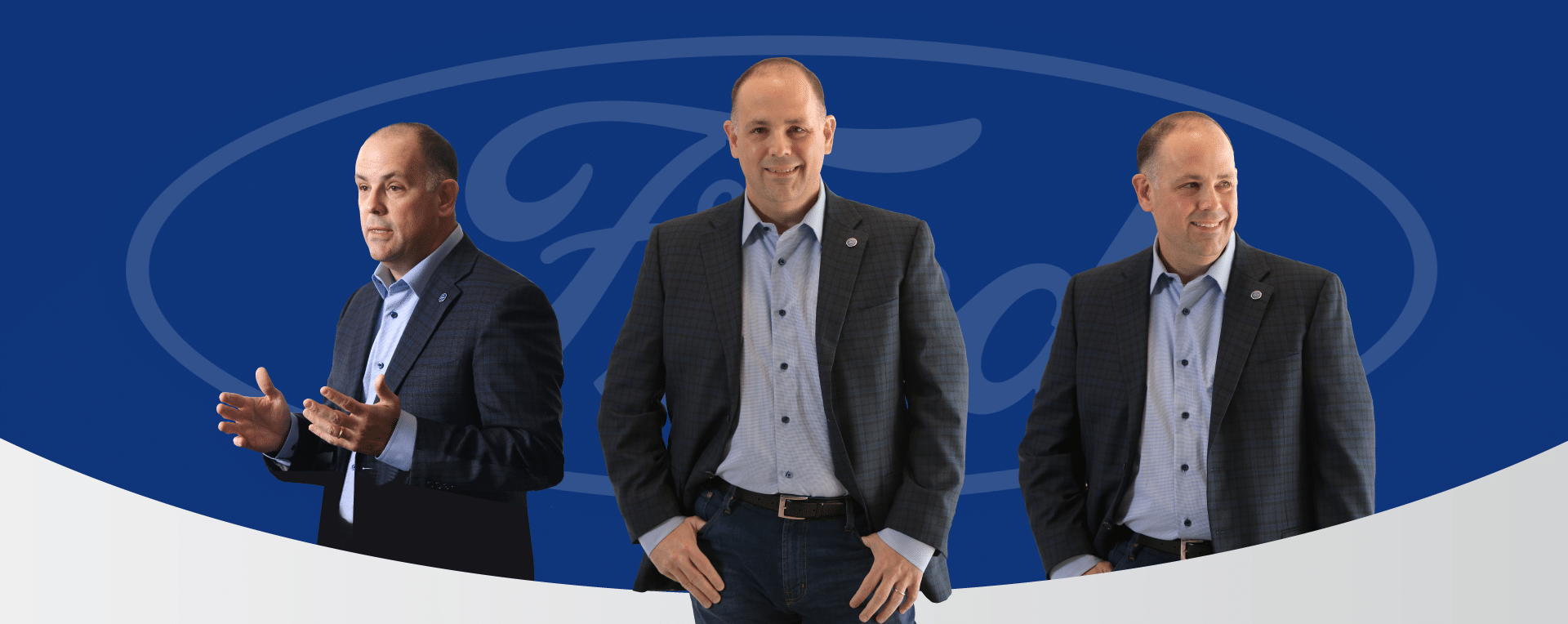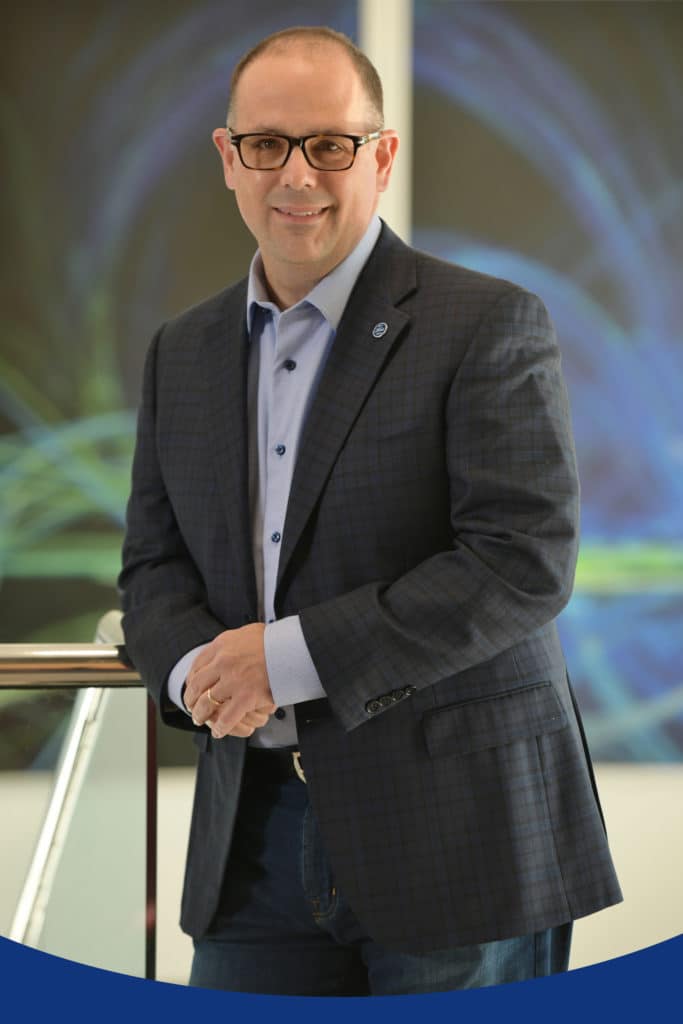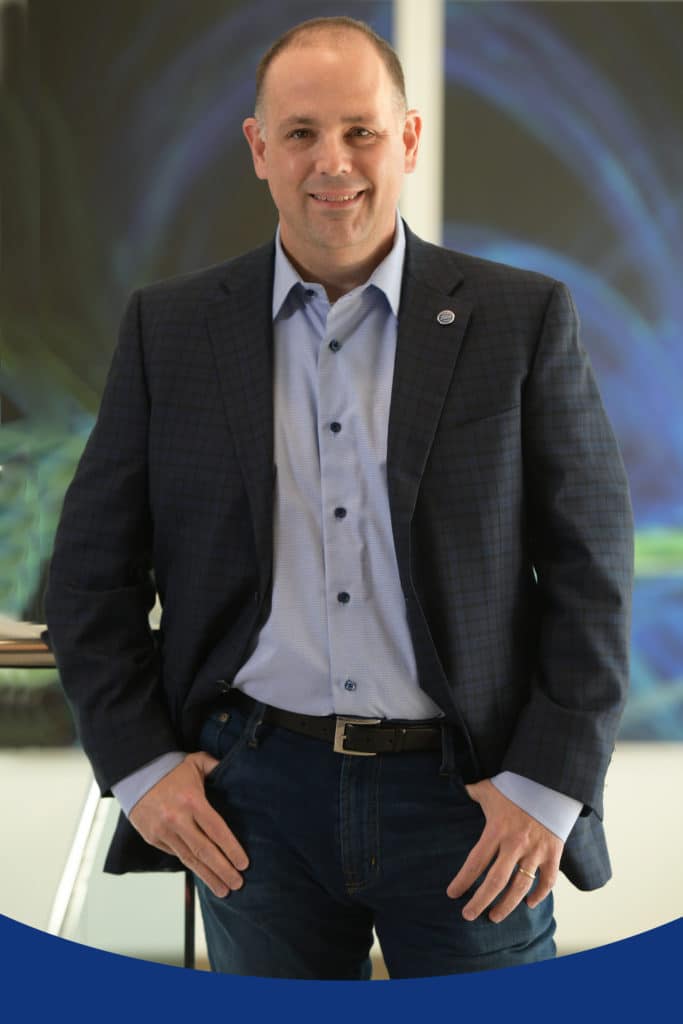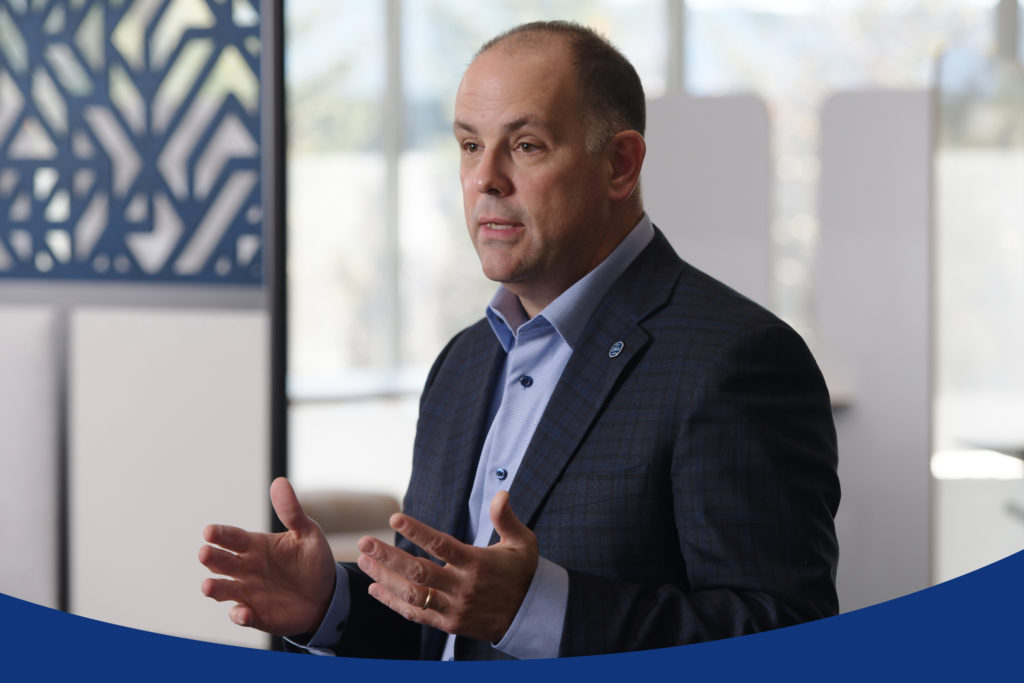Cultivating a community: Marion Harris, Auto Finance Executive of the Year
Harris became CEO of the captive on Nov. 1, 2019

In the auto finance industry, success is measured by a series of quantifiable metrics. Underwriting efficiency is measured by examining delinquency rates, market share is gleaned from origination volume, and how lenders stack up against one another can be measured by total managed assets. The list goes on.
Measuring the success of a company’s internal culture isn’t as cut and dried, especially when many team members are still working remotely. How does one know that team members are flourishing? And how does one facilitate engagement and connectivity when so many are still sequestered at home?
At Ford Credit, President and Chief Executive Marion Harris has written a winning playbook for this, and his people-first approach has allowed the captive to post quantifiable — even historic — earnings results while cultivating a community within the ranks of Ford Credit at a time when uncertainty surrounding the COVID-19 pandemic runs high.
In fact, the year leading up to the third quarter of 2021 was one ripe with record setting milestones for the Dearborn, Michigan-based lender. Q3 2020 was hailed Ford Credit’s “strongest performance in 15 years” with over $1.1 billion in earnings before interest and taxes (EBIT). The following quarter marked the “strongest Q4 ever,” with $912 million in EBIT, a $300 million increase year over year, according to Ford Motor Chief Executive Jim Farley.
By the end of Q1 2021, EBIT was on the rise, jumping to $962 million, then catapulting to $1.6 billion in Q2 — the captive’s highest ever — before dropping to $1.1 billion at the end of Q3. In the second and third quarters alone, Ford Credit provided $4 billion and $1.5 billion, respectively, in distributions to its OEM.
Granted, those impressive earnings were undoubtedly influenced by ongoing favorable macroeconomic factors for the industry, such as inflated used-vehicle values, supply chain constraints and improvements in the credit market due to fiscal stimulus, Harris told Auto Finance News over Zoom.
“However, what I will tell you is that every single part of our business performed better than we had planned — on the things that we control,” Harris said. “And it’s that way because of our passion to treat customers like family.
“I think back over the year, some of the things we just jumped in: we had programs like We’ve Got You Covered [and] the lease extensions when the supply shocks hit. We wanted to make sure that our customers weren’t left without a vehicle,” Harris said.
But those programs required processes and capabilities on the IT side that Ford Credit wasn’t prepared for, Harris said. So, the lender took the of the pandemic as an opportunity to modernize the business faster than they had planned. “We were able to accelerate our digital capabilities. And because of that, we we’ve moved a lot faster in 2021 than we thought we could.”
In fact, Ford Credit is doubling down on those investments in modernization across the whole company, particularly in the company’s business centers, where the focus is serving the company’s customers and dealer partners, Harris said.
“We’re making big investments across major processes to really focus on the customer experience, the employee experience, while at the same time driving efficiencies,” Harris said. “We’ve been able to drive out costs while at the same time significantly improving the experience for our customers and our employees.”
One successful investment in companywide efficiencies was the lender’s online chat option, launched in 2021, Harris said. “We had an expectation that chat would somewhat replace customer calls,” he explained. “But in fact, it was additive. So, what that tells us is that we’re expanding the number of customers that we’re building a digital relationship with.”
Ford Credit has also seen quite a bit of success working with dealers and customers on lease extensions to help alleviate supply constraints, another aspect of the modernization the lender has been undertaking this year, Harris said. “On a lease termination, we didn’t have the capability of getting retail. We’re now working with our dealers to convert lease extensions into orders, which is resulting in sales and loyalty.
“Let’s say a customer has a three-year lease and it terminates next month, and they go to the dealer and there’s no inventory. What we’re saying to the customer is: Place a retail order, you pick out the vehicle of your dreams, Ford Credit will extend the lease, and we’ll be very flexible on the lease termination, depending on how the vehicle gets built and delivered.”
A career minted at Ford Credit

Harris’ career didn’t start at Ford Credit, but he has minted it there in the 22 years he has held positions at the captive, mostly in finance and treasury. Straight out of college at Mississippi State University, where he later earned a master’s degree in mathematics, he worked on oil, gas and mining deals in the Soviet Union for U.S. oil executive Nelson Bunker Hunt, who “famously lost $35 billion over the course of his life.”
From there, Harris moved into banking, following in his father’s footsteps. “My father was a smalltown banker, so it was a natural place for me. We went through a couple mergers, so I kept changing jobs every time the bank would get sold.” Eventually, he joined Ford Motor Co. “I thought if Ford was for sale then, in fact, every other company on Earth was probably for sale.”
At Ford Motor he “spent a lot of time in treasury and finance,” including a stint as treasurer of the OEM’s South America division, before returning to the United States to serve as the assistant treasurer of the OEM. Then, he held a role as chief financial officer for the captive for just over two years, before jumping to Ford Motor’s mobility business group, then departing Ford for a couple of years before returning as CEO on Nov. 1, 2019.
That wide breadth of experience is precisely what makes Harris an effective leader and CEO, Ford Credit Chief Financial Officer Brian Schaaf told AFN.
“He is probably an ideal candidate for CEO here because, while he hasn’t grown up in every job at Ford Credit and done every single job — we worked together when we were in Treasury — he was focused on funding for Ford Credit, and then he was the CFO, but also because he just puts all the pieces together,” Schaaf said.
Schaaf views his work with Harris — dating back to 2004 — as a partnership as well as a friendship. “If you think about it, working for someone [who previously held your position] … they know how to do your job, and they’ll tell you how to do your job, right? That can be the risk. In my case, that’s not the case at all, but the benefit is he knows what I do, so I can be strategic.”
This hands-off leadership approach was a learned behavior, Harris said, comparing the experience to that of being “a finance guy” in the mobility industry. “That was very detailed. Constantly questioning everything, every investment, every expenditure, everything. Once you become CEO, you just don’t have the time to get into those kinds of details.” Instead, Harris’ focus turned to understanding how to motivate team members without directing him. “T
Cultivating community
Still, Schaaf and Marlene Martel, general counsel at Ford Credit, praise Harris’ ability to rally the team and motivate employees, which has become extra important in the current environment.

“Marion is super enthusiastic as a leader; it’s infectious, actually. He’s very excited about competing,” Martel said. “You know, particularly with all the transformation that’s happening today in our industry — it’s sort of changing at the speed of light — not just on the automotive side, but the finance side as well. It’s very energizing for the team. He’s very empowering to his team members. Not only is he sort of our biggest cheerleader, but he really empowers each of us to contribute and think of ways that we can do things.”
One way Harris achieves this sense of community among team members at Ford Credit is through transparency and communication, Martel said, ensuring that everyone feels they have a voice. For example, quarterly town halls are held with L5 leaders to allow people to ask questions and weigh in on important issues facing the lender.
Harris wants employees to “feel like they’re included and that they are an active participant in our success,” Martel said. “And I think everybody has responded to that so well, because something that we don’t normally see.
“Normally, you have your leaders go off and set your objectives and your priorities, and then just hand them out,” Martel said. “Marion didn’t do that; we sat down, we had a sketch of what we thought they should be. And then we got with a whole lot of leaders throughout the company and he went through. And then he said, ‘here’s what we’re thinking, what are we missing? What’s right, what’s not right, what shouldn’t be prioritized?’”
Harris is also known for what Schaaf calls his habit of “Cisco bombing,” which is akin to walking around the office to check in with team members, but via WebEx or Zoom due to COVID.
“He does that with people throughout the organization, just to check in and see how they’re doing,” Schaaf said.
It’s no surprise that Harris has removed some of the traditional guard rails and segmentation from his management style, however.
“I hate bureaucracy. I really do. I think its terrible, and I’m trying to stamp it out,” Harris said. “I seek feedback all the time from everybody. And I really thrive on that feedback. After meetings, I call people and check in, ‘how did that go?’ ‘What could I have done better? So that helps my leadership style, and importantly, to understand what’s happening in the room that I may not be aware of.”
“I really learned in the mobility job is it’s OK to fail,” Harris said. “And, in fact, we ought to celebrate people taking risks — not unwarranted risk — but … particularly in in advancing the customer. And so, we have a duty to learn from our failures, and I have an obsession about learning from other people’s mistakes.”
Tailwinds ahead
Looking ahead to 2022 and beyond, Harris and his teams are resolved, in the wake of Ford Credit’s strong performance in 2021, to amp up their focus on customer obsession, he said, as well as increase the company’s internal diversity, equity and inclusion efforts.
“We have been spending a lot of time on diversity, equity and inclusion. And it’s very important to me personally, it’s something I have a deep passion for,” Harris said. “We’re doing this not just because it’s a politically correct thing to do; it is the right thing to do. We’re trying to go way beyond that to create a real culture of belonging, where everyone can show up with their complete self.”
Externally, as Ford Credit thinks about next year, the immediate goal “is accelerating our efforts around digital transformation in our business, and in winning with our customers, Harris continued. “It’s improving our products; we’ve made great strides, for example, in our commercial vehicle lending business that we launched for Ford Pro Simple during 2021. That’s something that we’ll be building on next year. But importantly, we’re going to be really focused on building out great consumer capabilities in 2022, as well.”
Harris expects used-vehicle values to remain high for “some period of time,” which should help Ford Credit continue to realize strong financial gains on its balance sheet and provide a runway to continue the captive’s transformation.
“That is a tailwind for our business,” Harris said. “It helps improve our lease performance, it helps reduce our credit losses. And it gives us time with good financial performance to make sure that we’re investing at rapid speed —as they used to say, ‘make hay while the sun is shining.’ That’s what we’re doing.”

















